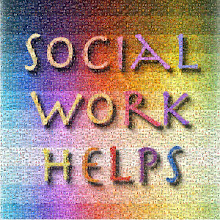I’ve had some interesting educational opportunities this week. First of all, I had the privilege of hearing Larry Churchill lecture on the healing power of relationships. Mr. Churchill is a professor of Medical Ethics at Vanderbilt University. The lecture was, for all intents and purposes, absolutely fascinating. Seriously, it was. I mean really.
Mr. Churchill and some colleagues did a qualitative study on medial clinicians who have received peer reports indicating that they are very good at building rapport with patients. The intent of the study was to help us develop some understanding of common practices that are used in building relationships. Mr. Churchill and his colleagues identified some common practices. As a side note, I took copious notes on the lecture, and I was actually complimented on my note taking skills, which is a first for me. Note taking is not normally my strength).
He instructed us to take the time to be present, personalize the relationship with the patient, utilize common courtesies, and do things that remind the patient that you are human too.
He also reminded us to be present and listen. When seeking to engage clients, there should be NO MULTI-TASKING (I am the worst at this. I feel like being present is one of my biggest weaknesses as a social worker). Patients and their families deserve our undivided attention when they are with us.
Ultimately, Dr Churchill told us that clinicians need to live out humility. We should be “worthy to serve the suffering.” This means that we live good lives, we carry ourselves in such a way that suffering people will feel safe with us.
I think one of the most interesting ideas that Dr. Churchill shared with us is that healing is not something that flows from the clinician to the client, but it is a feature of the interaction.
I was also privileged to attend a Q&A session with Elie Wiesel, distinguished professor, Nobel Laureate, holocaust survivor, and political activist. It was a very intimate conversation; only me and a handful of other students. The students asked Dr. Wiesel how he felt about various issues the world is facing, including the wars in Iraq and Afghanistan, the conflicts in Israel and Palestine, the recent suicides of homosexuals, and many other things. He shared with us his mantra: Whatever we do in life, we need to think higher and feel deeper. He encouraged those of us who want to be lifelong servants and humanitarians to remember to enjoy our own lives, but consistently be thinking about those who are unable to enjoy it.
Dr. Wiesel also made a comment about God that resonated with me. A student asked him if he felt that God was indifferent to the suffering in the world. Dr. Wiesel pointed out that the world’s definition of injustice may be different from God’s definition of injustice, due to the fact that God may have a different perspective than those of us on earth. It’s an idea that has been rolling around in my head for a few months now, but he managed to put it into words that make sense other people as well as me.
I’m so grateful for the educational opportunities I have received. I love being able to learn from great people. Great clinicians, great activists, just plain and simple great people. My goodness, I love Social Work!



 5:01 PM
5:01 PM
 Social Work Helps
Social Work Helps

 Posted in:
Posted in: 










1 remarks:
I can't believe you got to speak with Dr. Wiesel! What an incredible moment.
Post a Comment